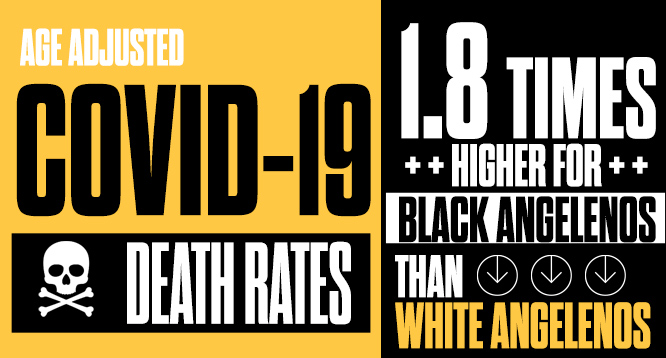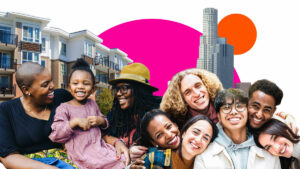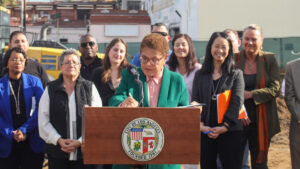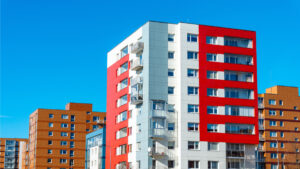The Challenge
Los Angeles’ Black community continues to be denied their rightful share of the Californian dream. The same violence and anti-Black racism that is increasingly visible today have a long legacy in Los Angeles and have shaped the daily lives and experiences of Black Angelenos for far too long. On almost every social and economic metric including but not limited to, access to healthcare, income, employment, homeownership, education, and incarceration, the Black community faces systemic discrimination. Despite this, Black Angelenos have built a vibrant community full of creative and entrepreneurial energy throughout Los Angeles, critical to the region’s success and helping chart its future.
The No Going Back LA context report outlined the effects of systemic racism and discrimination on Black Angelenos, highlighting the disparate impact on communities of color across all the interconnected issues ranging from healthcare to economic stress. This has continued to be true in the year since the report released as the COVID-19 pandemic has disproportionately devastated the Black community, but progress has been made in the past year. Grounded in this context and centering the expertise of Black leaders and community members from across the region, The Path to Justice Runs Through Equity: Ending Anti-Black Racism in Los Angeles report was released on August 20, 2021. This is an actionable roadmap for every Angeleno to engage in the collective work of dismantling systemic and procedural discrimination and disinvestment in Black communities while amplifying the organizations and initiatives that are moving us toward a truly equitable LA.
- Black & African American unemployment rate was 9.2% in the 2nd quarter of 2021, 3.5% higher than the national average.

“If as a city, we continue to do the same things, even with different intentions, we will get the same unequal results. COVID and the murder of George Floyd have given us a path to reimagine Los Angeles as a truly just and equitable community. We are finally seeing a mainstream discussion about racial reckoning and an outpouring of love and true concern for the Black community from every sector of society. But we need to listen to Black people as they have the knowledge, insight, and know-how to uplift their communities.”
– Cory Matthews, Chief Operating Officer at The Community Coalition of South Los Angeles
The Way Forward
Building on eight months of intersectional deliberations about the state of Black communities, institutions, and systems across Los Angeles, CGLA’s Black Experience Action Team released a 10-year vision and plan to end Anti-Black Racism in Los Angeles. This includes specific calls to action for advocacy, philanthropy, government, nonprofit, and the business communities to do their respective parts and collaborate to achieve the outcomes identified in the report by embodying the four principles of Black equity: strength, truth, love, and strategic disruption. The week after the report release, the City of LA adopted an anti-racist framework to ensure City policy “leaves no community behind on the pathway towards economic recovery”; one example of how the Black experience can guide the recovery of Los Angeles if we put Black voices first.
We must fundamentally rebuild our systems and ensure that Black communities are uplifted with systemic reform. Now is the time to address anti-Black racism in all its forms by taking action in all sectors of the economy. As highlighted in the Making Los Angeles Whole campaign, newly acquired public recovery funds should be targeted towards communities hardest hit by COVID. The LA REPAIR Innovation Fund, for instance, moves past simply stimulating the economy and looks to concurrently empower Black communities by putting $10 million towards community intervention, racial healing, and reconciliation work. Highlighted as a priority by Black leaders, several Basic Income Pilots in the LA area aim to mitigate economic stress. Announced this year, The Reparations Commission takes the necessary first steps to evaluate how best to redress past injustices and anti-Black racism in our economic, social, and political systems.
Local Black leaders, the foremost experts in providing for and uplifting their communities, must be sought out and supported in order to compel lasting change for LA’s most historically disenfranchised neighborhoods. Black-led community organizing and civic work helped pass Measure J in fall of 2020, and the resulting “Care First, Jails Last” initiative reimagines the carceral system in Los Angeles that disproportionately targets Black communities and instead prioritizes community investment. There are also many good examples in the non-profit space to support and build on. Through their Urban Scholars Program, the Social Justice Learning Institute teaches youth of color to advocate for themselves and their communities, by providing a culturally relevant curriculum and academic support through a social justice lens.
Download our report The Path to Justice Runs Through Equity: Ending Anti-Black Racism in Los Angeles today!



